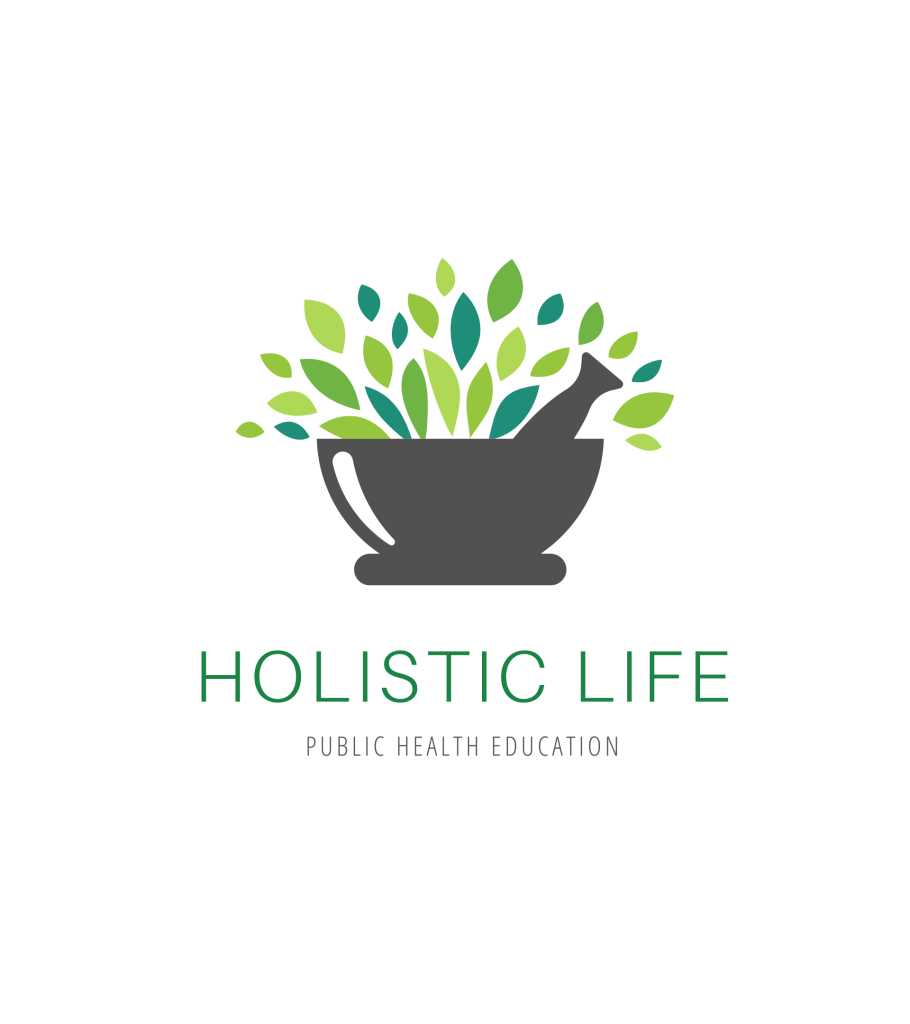Discover the rise of African holistic wisdom and how it is reshaping wellness in 2025. As more people seek natural, whole-person approaches, the african holistic book is becoming a cornerstone for those who want to reclaim their health.
This guide highlights the most influential books, shares their transformative insights, and shows practical steps for everyday life. You will learn the roots of African holistic health, find essential book recommendations, and uncover strategies for deep, lasting well-being.
Ready to transform your wellness journey? Explore the world of African holistic health literature and start your path to empowered living.
Understanding African Holistic Health: Roots and Principles
African holistic health is rooted in centuries-old traditions that emphasize wellness as a way of life. Exploring the origins and principles of these practices reveals why the african holistic book has become essential reading for those seeking to reclaim balance of mind, body, and spirit.
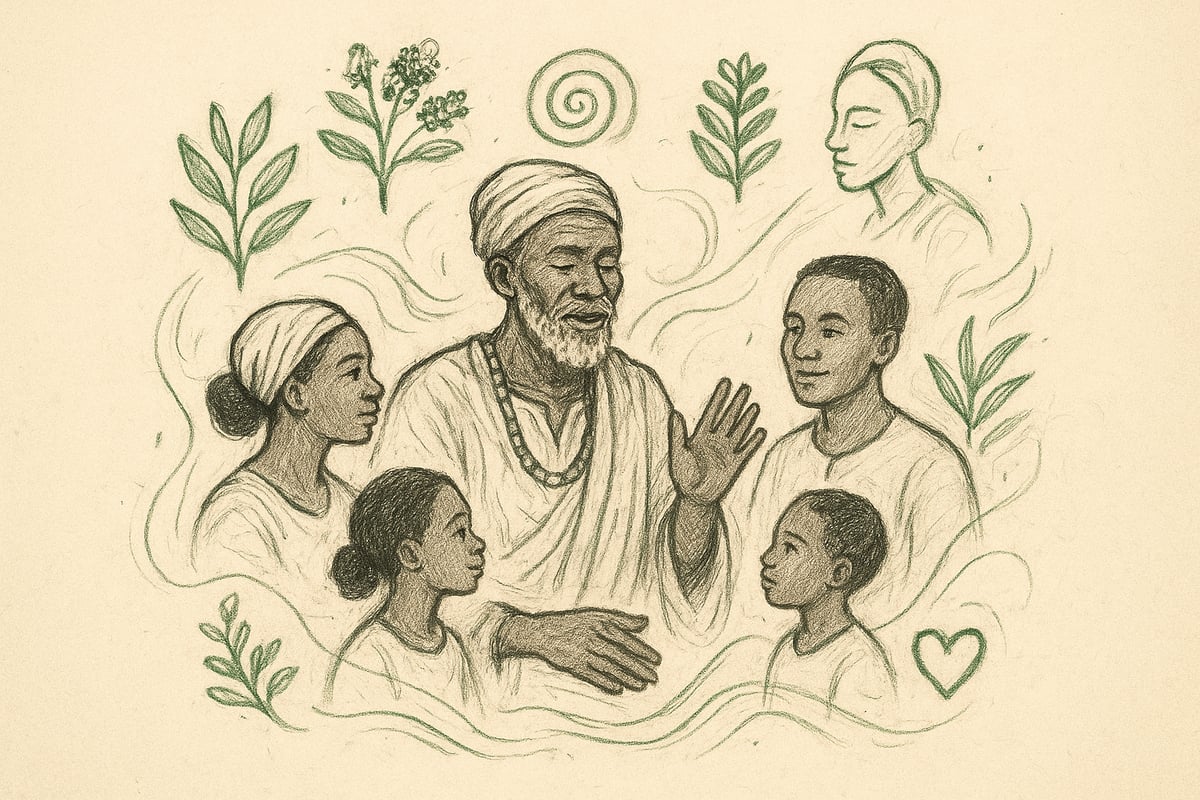
Origins of African Holistic Health
The roots of African holistic health stretch back thousands of years, grounded in the healing traditions of diverse cultures across the continent. Ancient systems like Yoruba, Igbo, and Kemetic medicine prioritized the interconnectedness of individuals with their environment and ancestry.
Traditional healers, often called herbalists or spiritual leaders, played a central role in supporting wellness within the community. Their methods integrated indigenous diets, herbal medicine, and spiritual practices, shaping a dynamic approach to health.
Unlike Western biomedical models that focus mainly on treating illness, African traditions view health through a communal and preventative lens. The african holistic book tradition highlights that wellness involves lifestyle choices, daily rituals, and harmonious living rather than isolated treatments.
Core Principles and Philosophies
Central to African holistic health are principles that stress balance and harmony within oneself and with the surrounding world. Prevention, self-care, and self-diagnosis are encouraged, empowering individuals to take proactive roles in their health journeys.
Food is considered medicine, with plant-based nutrition forming the foundation of many healing systems. Spirituality and ancestral wisdom are not separate from health—they are its cornerstone. Community and family remain vital, reinforcing the idea that wellness is collective.
Interest in these philosophies is rising globally, as demonstrated by trends data. For instance, the “holistic sex laws” and self-diagnosis methods described in the African Holistic Health by Dr. Llaila O. Afrika have inspired new generations to embrace holistic living. The african holistic book movement showcases how tradition and modern science can blend for practical self-care.
Modern Relevance and Global Impact
Today, African holistic health practices are gaining momentum worldwide. People are increasingly drawn to these methods as they seek to address health disparities and challenge the limitations of conventional healthcare.
Afroindigenous wellness communities and online groups are connecting like-minded individuals who value both ancient wisdom and cutting-edge science. Integration with modern functional and integrative medicine is bridging gaps between traditional and contemporary approaches.
By adopting the teachings of the african holistic book, individuals and communities are filling critical needs left unmet by standard healthcare systems. This global embrace of African-centered wellness signals a transformative shift in how we define and achieve health.
Essential African Holistic Health Books for 2025
Choosing the right african holistic book can be transformative for anyone seeking to reclaim their wellness journey. In 2025, a new wave of readers is turning to these foundational texts for practical guidance, ancestral wisdom, and step-by-step health strategies. Here, we present the most essential works shaping the future of holistic wellness.
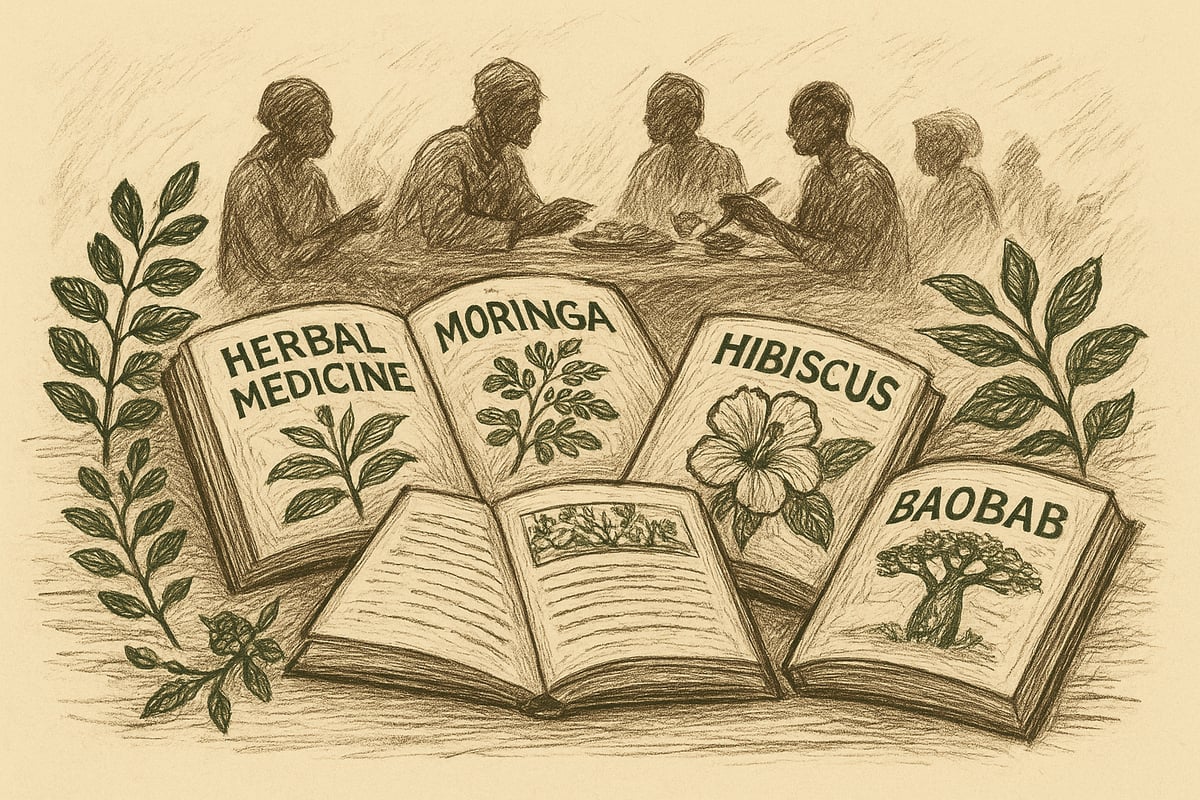
African Holistic Health by Dr. Llaila O. Afrika
"African Holistic Health" is often regarded as the cornerstone african holistic book for anyone interested in a comprehensive, African-centered approach to wellness. This seminal guide dives into the interconnectedness of mind, body, and spirit, offering practical advice rooted in centuries-old traditions.
- Explores herbal remedies and homeopathy.
- Details physiological and psychological differences unique to people of African descent.
- Critically examines the impact of commercial foods on health.
The book includes in-depth disease treatment protocols and emphasizes the dangers of processed foods. With over 700 pages, it stands as one of the most cited sources in holistic health and nutrition. Whether you are new to holistic living or seeking advanced knowledge, this african holistic book provides a thorough foundation for lifelong wellness.
The Textbook of African Holistic Health by Dr. Llaila O. Afrika
Expanding on the original, "The Textbook of African Holistic Health" offers a deeper dive into holistic health diagnosis, lifestyle, and remedies. This african holistic book stands out for its methodical structure, featuring 711 pages of updated methodologies and practical tools for self-care.
- Provides step-by-step guides for holistic self-assessment.
- Includes comprehensive charts and checklists for tracking health.
- Focuses on nutrition, spiritual practices, and preventive strategies.
There is a strong demand for this resource as readers seek reliable, self-guided wellness tools. For those ready to deepen their practice, the The Textbook of African Holistic Health is a must-have african holistic book, bridging ancestral wisdom with modern application for optimal health outcomes.
The Complete Textbook of Holistic Self Diagnosis by Dr. Llaila O. Afrika
Self-empowerment is at the core of this african holistic book, which equips readers with the ability to detect imbalances before they become chronic issues. "The Complete Textbook of Holistic Self Diagnosis" demystifies the process of reading the body's signals, blending ancient techniques with modern insight.
- Teaches physical, emotional, and energetic self-assessment.
- Offers practical diagnostic charts and checklists.
- Encourages proactive, preventive care through daily routines.
By using these methods, individuals can take charge of their health journey. This african holistic book is especially valuable for those who want to minimize dependency on conventional medical systems and cultivate body awareness for long-term wellness.
Dr. Sebi’s Herb Encyclopedia and Related Works
Dr. Sebi’s contributions have become legendary within the african holistic book landscape, especially for their focus on herbal remedies and alkaline nutrition. His "Herb Encyclopedia" and related works by Serena Brown and A.J. Bridgeford provide accessible, natural solutions for disease prevention and healing.
- Features 101 natural remedies for common ailments.
- Includes detox protocols, such as mucus cleanses and liver resets.
- Offers practical guides for diabetes reversal and immune support.
Dr. Sebi’s books are particularly popular due to their clear, actionable advice and focus on indigenous African herbs. For anyone seeking a practical african holistic book that emphasizes nutrition and herbal medicine, these guides are indispensable.
Additional Influential Titles
Beyond the classics, several other works are making a significant impact in the african holistic book movement. "Is Your Doctor’s Medicine Killing You?" by Dr. Llaila O. Afrika challenges the pharmaceutical industry and advocates for natural alternatives. The "Dr. Sebi Alkaline Diet Recipe Book" delivers practical recipes for holistic nutrition and disease reversal.
- Integrates diet, herbs, and lifestyle for comprehensive health.
- Blends traditional wisdom with scientific research.
- Supports readers in transitioning to plant-based, whole-food diets.
These titles reinforce that each african holistic book is more than a manual, serving as a bridge between tradition, science, and practical daily steps. Collectively, they empower individuals to embrace holistic wellness and reclaim autonomy over their health.
Practical Wellness Insights from African Holistic Books
African holistic book guides offer a wealth of practical strategies for achieving whole-person wellness. These books distill centuries of African healing wisdom into actionable advice, making holistic health accessible for modern readers. By exploring nutrition, self-diagnosis, detoxification, spiritual practices, and daily routines, you can transform your approach to wellness with insights rooted in tradition and proven by contemporary results.
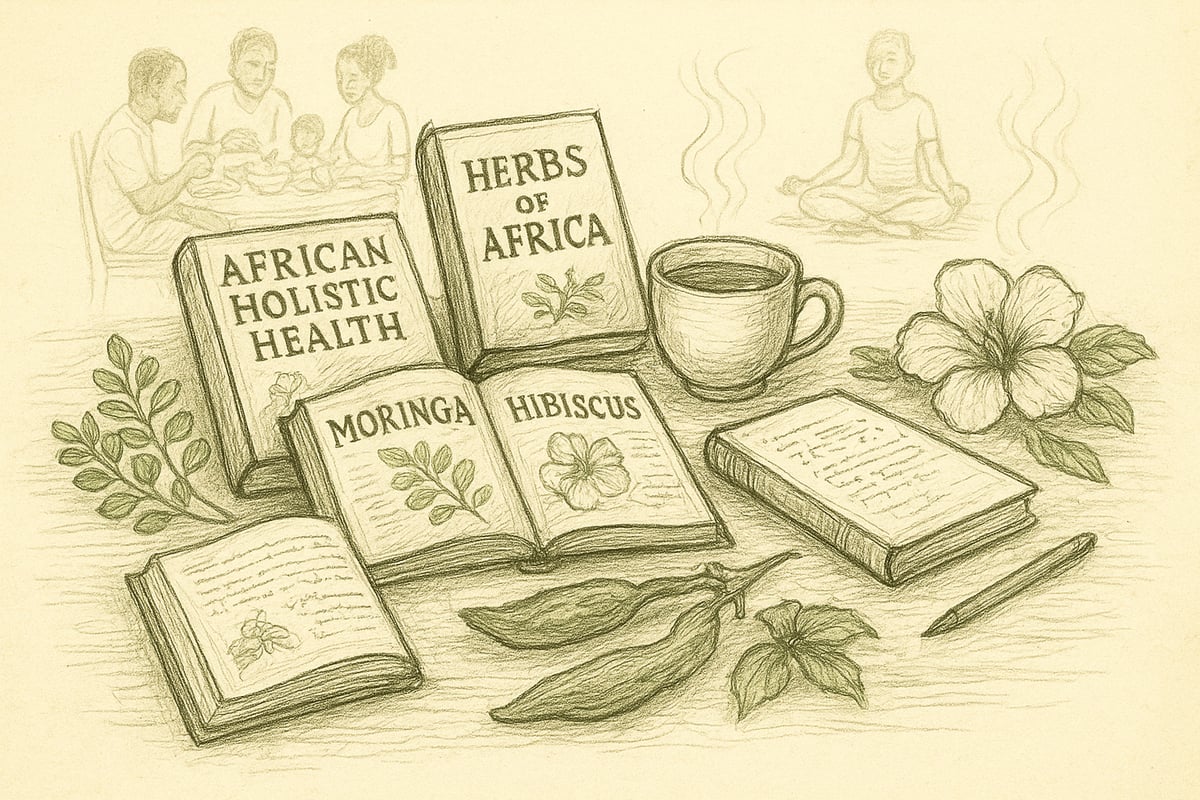
Nutrition and Herbal Medicine
Nutrition is a central theme in every respected african holistic book. These resources emphasize plant-based, alkaline diets built around indigenous African foods. Bitter leaf, moringa, hibiscus, and baobab are frequently highlighted for their healing properties and nutritional density.
Transitioning to an African-inspired holistic diet involves focusing on whole foods, reducing processed ingredients, and using food as medicine. Many books provide stepwise guides for gradually shifting your eating habits. For example, you might start each day with a herbal tea, add leafy greens to every meal, and incorporate superfoods like baobab powder.
Recent studies confirm that plant-based African diets can support metabolic health and lower the risk of chronic illness. By following the nutritional advice in an african holistic book, you gain not only recipes but also a deeper understanding of how food supports healing and vitality.
Self-Diagnosis and Preventive Care
A unique feature of many african holistic book titles is their focus on self-diagnosis and preventive care. Rather than waiting for illness to develop, these books teach you how to become more aware of your body's signals. Tools like symptom tracking, energy level assessments, and physical observation are common.
For instance, pulse reading, tongue analysis, and even subtle changes in mood or sleep patterns can reveal early signs of imbalance. This proactive approach empowers you to make adjustments before problems escalate. The The Complete Textbook of Holistic Self Diagnosis is a prime example, offering practical checklists and diagnostic charts to help you take charge of your health.
By integrating these self-assessment methods from an african holistic book, you can intervene early and reduce your risk of chronic disease, making preventive care a natural part of daily life.
Detoxification and Cleansing Protocols
Detoxification is a recurring theme across the african holistic book landscape. Authors like Dr. Sebi and Dr. Llaila O. Afrika provide detailed protocols for eliminating toxins and restoring balance. These methods often include mucus cleanses, liver detoxes, and full-body resets using natural ingredients.
A typical detox plan might involve herbal teas, fasting, and specific foods known to support the liver and digestive system. Step-by-step instructions ensure safety and effectiveness, allowing you to follow a structured process at home.
Detox programs inspired by african holistic book teachings have become some of the top-selling digital health plans in recent years. The focus is always on natural approaches that respect the body's rhythms and promote long-term wellness.
Integrative Spirituality and Mental Health
Spirituality and mental health are inseparable from physical well-being in the african holistic book tradition. Meditation, ancestral rituals, and community healing circles are common practices recommended by leading authors.
For example, journaling and guided visualization are simple yet powerful tools for addressing stress and trauma. Many books encourage connecting with ancestral wisdom through rituals or group practices, reinforcing a sense of belonging and purpose.
By adopting the spiritual strategies found in an african holistic book, you can foster resilience, reduce anxiety, and support emotional healing. This integrative approach recognizes that true health encompasses mind, body, and spirit.
Everyday Practices for Holistic Living
The most impactful lessons from any african holistic book are often the simplest. Daily routines, such as movement, rest, hydration, and mindfulness, form the backbone of holistic living. Many authors stress the importance of family-centered traditions, like shared meals and herbal teas.
Setting aside time each morning for a wellness ritual, such as preparing a nourishing breakfast or practicing gratitude, can create lasting change. Community involvement, whether through group exercise or collective healing events, further strengthens these habits.
By consistently applying the everyday practices outlined in your chosen african holistic book, you cultivate a lifestyle that supports lifelong wellness and empowers not just individuals, but entire communities.
Decolonizing Wellness: African Holistic Health and Systemic Change
The movement to decolonize wellness is reshaping global health conversations, with the african holistic book at the forefront. This shift recognizes the limitations of conventional Western healthcare and uplifts traditional African healing wisdom as a path to holistic well-being. As more individuals seek balance, prevention, and empowerment, the african holistic book offers both critique and solutions to systemic health challenges.
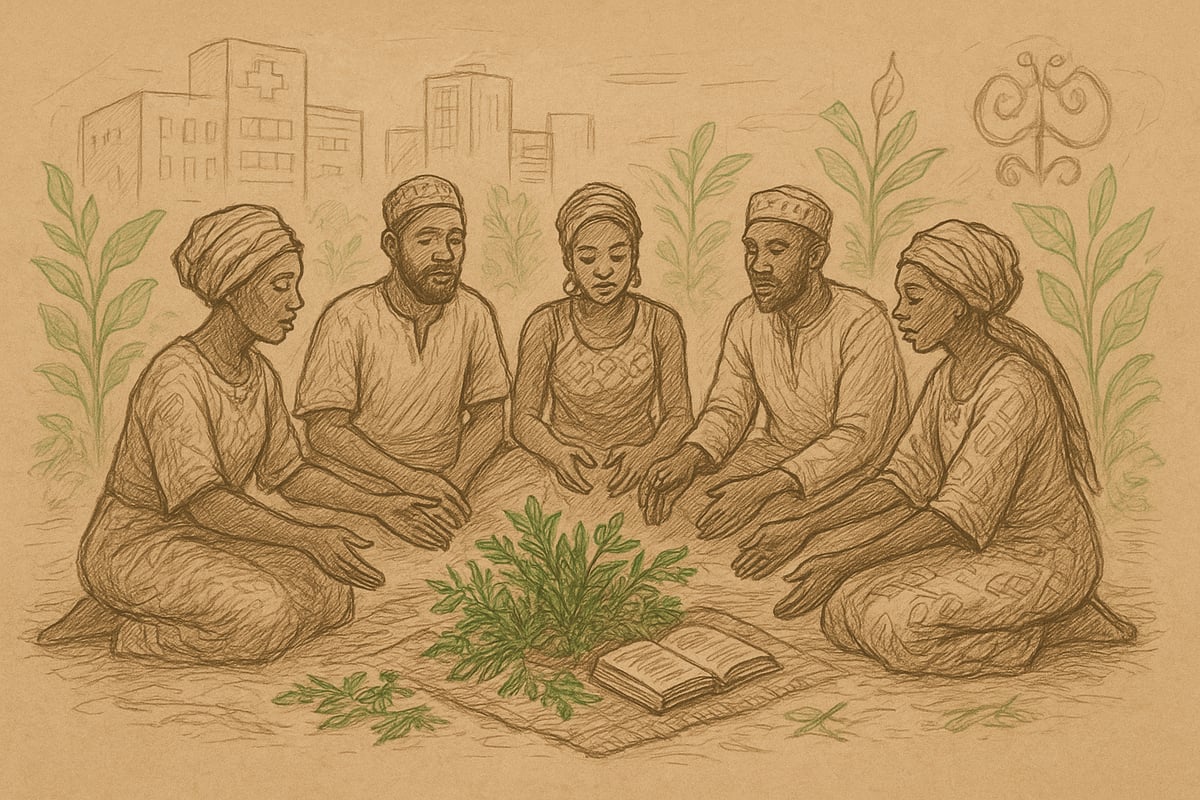
Challenging Conventional Healthcare Paradigms
For centuries, Eurocentric medical systems have dominated global health, often sidelining indigenous perspectives. The african holistic book challenges these paradigms by exposing the biases and gaps in mainstream healthcare. For example, chapters in “African Holistic Health” examine how European herb trade and colonial histories shaped disease patterns and healthcare access.
Data from the CDC (2023) reveals persistent disparities in chronic disease outcomes by race. These inequities highlight the urgent need for alternative frameworks. The african holistic book argues that true wellness must address not only symptoms but also the root causes—social, historical, and cultural.
By critiquing pharmaceutical overreliance and emphasizing prevention, the african holistic book invites readers to question dominant narratives and seek more inclusive, effective solutions.
Reclaiming Traditional Knowledge
Reviving indigenous healing practices is central to the african holistic book philosophy. Oral history, storytelling, and intergenerational learning are essential for preserving this wisdom. Modern books draw from Yoruba, Igbo, and Kemetic traditions, illustrating how ancestral knowledge adapts to contemporary needs.
A valuable resource in this journey is Working The Roots: Over 400 Years of Traditional African American Healing, which explores the evolution of traditional medicine through centuries of resilience and adaptation. The african holistic book movement positions traditional wisdom not as relics of the past, but as vital tools for addressing today’s health crises.
By reconnecting with these roots, individuals and communities gain access to holistic approaches that honor both science and spirit. The african holistic book thus bridges generational divides, ensuring that healing knowledge endures.
Community Empowerment and Collective Healing
Community is a pillar of the african holistic book approach. Local and global wellness collectives are taking action to address health inequities, educate, and advocate for change. Afroindigenous wellness groups, online forums, and community-led programs have seen rapid growth, according to WHO data (2024).
Key strategies include:
- Hosting community healing circles and workshops.
- Sharing resources and self-care practices.
- Promoting ancestral foods and herbal remedies.
These collective efforts amplify the impact of the african holistic book, turning knowledge into action. When individuals come together to reclaim wellness, they foster resilience and collective transformation.
Integrating Science and Spirit
The african holistic book philosophy recognizes that holistic health is both personal and political. Integrating evidence-based medicine with ancestral wisdom creates a powerful synergy. Holistic health coaching programs now blend scientific research with spiritual practices, providing comprehensive care.
This integration ensures that the african holistic book remains relevant and effective, meeting the needs of diverse populations. By honoring both tradition and innovation, the african holistic book sets a precedent for future wellness models.
In summary, decolonizing wellness through the african holistic book means challenging outdated systems, reclaiming knowledge, empowering communities, and blending science with spirit. This transformative approach is shaping a more inclusive, equitable, and holistic future for all.
Steps to Implement African Holistic Wellness in Daily Life
Adopting the principles from any respected african holistic book can transform your approach to health. By integrating time-honored strategies into your daily routine, you empower yourself to pursue whole-person wellness. The following steps offer a structured way to begin your journey, drawing directly from the core teachings found in influential african holistic book resources.
Step 1: Assess Your Health Holistically
Begin with a comprehensive self-evaluation. Use the self-diagnosis checklists and symptom trackers found in your chosen african holistic book to observe physical, emotional, and energetic patterns.
Reflect on your energy levels, mood, digestion, and sleep. Document any recurring symptoms or shifts. These tools, often featured in Dr. Llaila O. Afrika’s guides, help you build awareness and set a baseline for your wellness journey.
Step 2: Transition to a Holistic African-Inspired Diet
Gradually shift your meals toward whole, plant-based foods, as recommended in many african holistic book titles. Start by replacing processed foods with traditional African superfoods such as moringa, baobab, and bitter leaf.
Sample meal plan:
| Meal | Sample Foods |
|---|---|
| Breakfast | Millet porridge, moringa tea |
| Lunch | Steamed greens, yams, beans |
| Dinner | Okra stew, brown rice, hibiscus tea |
Implement these changes at your own pace, following guidance from trusted african holistic book recipes.
Step 3: Introduce Herbal Remedies Safely
Consult your african holistic book for reliable information on herbal remedies. Begin with gentle herbs like hibiscus and ginger, which are widely recognized for their safety and benefits.
- Research each herb’s properties
- Start with small doses
- Monitor your body’s response
Use the herbal remedy charts often included in Dr. Sebi’s works to guide your choices and ensure safe integration into your wellness routine.
Step 4: Establish Daily Wellness Rituals
Daily rituals are a cornerstone of advice in any african holistic book. Incorporate meditation, mindful movement, and hydration into your mornings and evenings.
Sample daily routine:
- Morning: Herbal tea, gratitude journaling
- Day: Light exercise, balanced meals
- Evening: Deep breathing, reflection
These consistent habits, inspired by african holistic book wisdom, foster resilience and balance in every aspect of life.
Step 5: Engage with Community and Education
Connect with others who share your interest in African holistic wellness. Join online forums, local groups, or book clubs centered around african holistic book teachings. Many Afroindigenous wellness collectives offer workshops and support for those beginning their journey. For a curated list of active wellness communities, consider visiting Black Wellness Collective.
Participating in group discussions and collective healing events amplifies your learning and sustains motivation.
Step 6: Monitor Progress and Adjust
Track your progress using journals and self-assessment tools from your african holistic book. Regularly review your diet, herbal use, and routines, making adjustments as needed.
Feedback loops, as recommended in most african holistic book guides, ensure your approach remains responsive and effective. Celebrate small victories and remain open to evolving your wellness strategy.
Expert Perspectives and Future Trends in African Holistic Wellness
African holistic book authors have ignited a global shift in wellness thinking, inspiring new strategies that blend ancestral wisdom with modern innovation. As we look toward 2025, their insights, along with emerging trends, are shaping a dynamic future for holistic health.
Interviews and Insights from Leading Authors
Pioneers like Dr. Llaila O. Afrika and Dr. Sebi emphasize the power of reclaiming health sovereignty through the teachings found in every african holistic book. Their core message? Health is not simply the absence of disease, but a daily practice of self-empowerment.
Dr. Afrika’s works advocate for lifelong learning, encouraging readers to become their own healers. Dr. Sebi’s legacy centers on natural remedies and plant-based living, with many citing his books as the spark for their holistic transformation.
“You must take responsibility for your health,” urges Dr. Afrika, “because your life depends on it.”
The Rise of Digital Holistic Health Platforms
The digital revolution is rapidly expanding access to african holistic book knowledge. Online courses, mobile apps, and virtual wellness communities now connect people worldwide with expert guidance and peer support.
Key features of these platforms include:
- Structured programs based on african holistic book teachings
- Remote coaching and tracking tools
- Interactive forums for shared learning
According to Statista, digital health app usage rose by 35% in 2024, demonstrating a powerful shift toward holistic self-care in the digital age.
Integration with Functional and Integrative Medicine
A promising trend is the collaboration between practitioners of african holistic book traditions and modern clinicians. These partnerships are creating hybrid care models that honor both ancestral wisdom and scientific rigor.
For example, functional lab testing is now used alongside holistic self-assessment methods, allowing for tailored health plans. Patients benefit from a more comprehensive approach that addresses root causes, not just symptoms.
This blending of modalities is setting a new standard for whole-person care, bridging the gap between conventional and traditional healing.
Emerging Topics: Mental Health, Chronic Disease, and Epigenetics
Recent african holistic book releases have spotlighted trauma-informed care, intergenerational healing, and the science of epigenetics. Authors are exploring how stress, diet, and ancestral factors shape wellness outcomes across generations.
Key 2025 trends include:
- Holistic strategies for chronic disease prevention
- Resilience-building practices for mental health
- Research on gene-environment interactions and lifestyle
Trend reports show that holistic approaches now outperform conventional models in patient satisfaction, marking a significant evolution in health care.
The Globalization of African Holistic Wisdom
African holistic book philosophies are gaining traction worldwide, inspiring diet trends, wellness retreats, and educational programs. The influence of African-centered wellness is evident in mainstream health conversations, as more people seek alternatives rooted in tradition and community.
Notably, initiatives like Afroindigenous wellness collectives are fostering global networks of support and knowledge exchange. To explore these movements further, visit Black Wellness Collective, a hub for African holistic health resources.
As these trends continue, African holistic wisdom is poised to shape the future of global wellness, offering a blueprint for sustainable, whole-person health.
As you explore the rich wisdom and practical strategies in these essential African holistic health books, remember that true transformation comes from both knowledge and community support. If you’re inspired to continue your wellness journey, connect with others who share your passion for reclaiming health through holistic, science-backed, and culturally rooted practices. Together, we can learn, grow, and uplift one another on the path to whole-person wellness. \
Join us and stay connected for the latest updates, resources, and community events by visiting Join Our Holistic Community for Updates.
